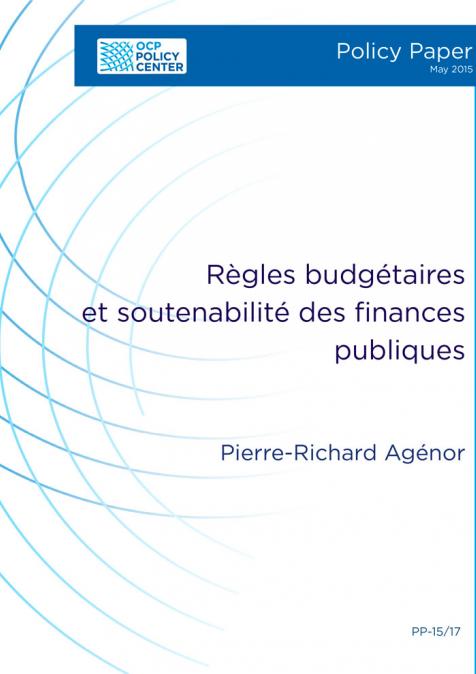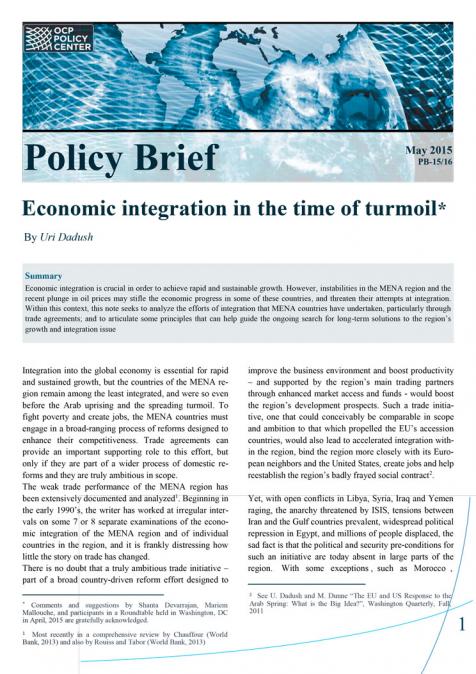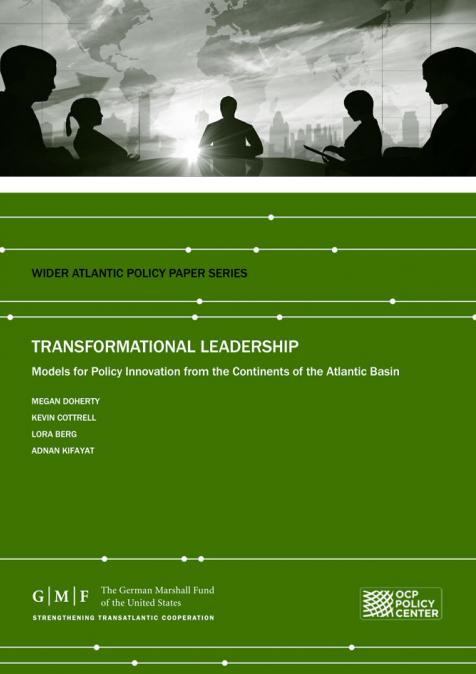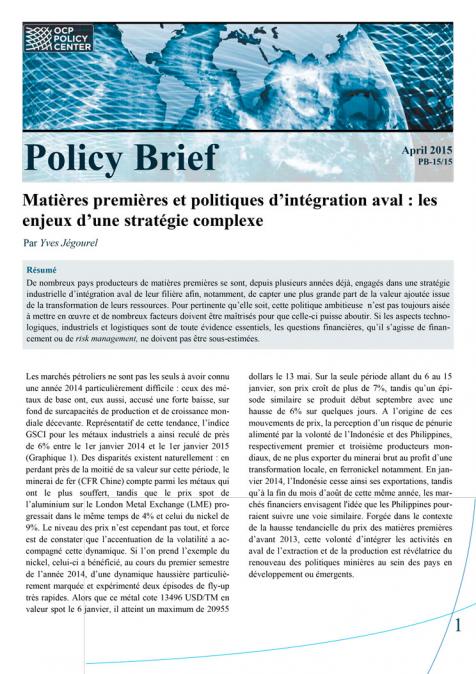Publications /
Opinion
Is the future of Europe decided in Africa?
No doubt that whatever happens in Africa, be it positive or negative, has an impact on Europe. Unfortunately, in recent years positive developments in Africa as a whole have rather been scarce, and this is especially true for sub-saharian Africa. But to be fair, one has to look more at countries individually rather than to Africa as a whole continent. Thus we can clearly see that in some parts there is progress and in others, unfortunately, there is standstill if not regression. And regression in some parts of Africa means more immigrants into Europe. My advice is that European and African leaders come together and honestly and seriously analyze the reasons why massive numbers of mostly young Africans are leaving there countries. Unfortunately I am not very optimistic that some of these leaders recognize that they have a direct responsibility in the situation.
If the waves of immigration continue, which seems likely, despite more radical border controls, right wing parties will certainly benefit and endanger political stability in some countries in Europe. Could further success of the right wing parties, which have gained substantial votes in Germany, Austria, France and Holland, not only damage the reputation of Europe, but democracy itself?
It is clear that the rise of right wing political parties in Europe is not shedding a good light on some countries. But solid democracies, as most of them are, can deal with this phenomenon. Have we not recently witnessed in France how the right wing Front National was thrown out of the political spectrum? The reason why this happened is simple: there was an alternative! In Germany, politicians of most parties are arguing for more restrictive immigration laws. Do you believe these measures will slow down or even stop immigration at all?
Immigration into Germany is directly linked to our welfare system and to the social benefits anyone in need is entitled to get. As long as there is no unified immigration system applying to all EU member states, immigrants will go to where they will find what they need most, no matter how tough the legislation and the rules in those countries are. And surely, Germany is one of them. Countries like Hungary or Poland are refusing to accept any refugees from war torn nations like Syria or Iraq. How can the European Union overcome its divisions?
Historically, one can find some reasons why certain Eastern EU member states are so reluctant – or even totally refuse – to accept immigrants into their countries. At the same time, since these States have become members of the EU, they have turned that page of history. They have become members just because they want to share values they did not have before, the most important of which, I would say, is nothing less than the respect of Human Rights. One of the paramount principles for the EU to function as a supranational organization is the principle of solidarity and burden sharing. In the long run, those countries which are still reluctant will come by. Austria is governed by a right-wing government. Hungary is following, just like Poland, a nationalistic path. Italian extremists seem to gain in the public’s favor, and the Alternative for Germany, the right wing anti-immigrant party, is gaining in public opinion polls. Are we facing a fascist Europe, or a division of philosophies? No, definitely not. History teaches us the lessons of the past when fascist regimes and systems have brought nothing but evil to the world. People and nations are not stupid. Their desire for freedom and peace and co-existence is much stronger than any of those crude and criminal ideologies.
Germany’s parties, with exception of the Leftwing and the Greens, are asking for harsher measures to control the flow of immigrants, particulary those who try to enter the European Union as “economic refugees”. Has the attempt to expel these illegal immigrants, most arriving from African nations, failed?
There are laws and rules on the basis of which immigrants can come legally to the EU and to Germany. Anyone who enters illegally faces the law. And this could also mean that he has to leave ultimately. Now, in such an open space like Europe where people move freely from one place to another it is almost impossible to control the borders. Unfortunately, human trafficking has become a flourishing business and I am afraid that the pouring in of illegals will not come to an end anytime soon. But stating that the EU has failed in this complicated issue is a clear misconception. Has the integration of more than one million refugees, mainly from Syria and Iraq, been a failure? Has bureaucracy been a failure, while overwhelmed by the masses arriving, or was the political will not present?
Integration of an Oriental or African society into the European cultural mainstream does not happen within a few months. This is a lifetime effort where the foreign individual clearly has a tremendous personal effort to produce, starting from learning the language and finding an adequate job. The administration is there to help and provide for anyone willing to integrate when it comes to language courses (also called integration courses), to accommodation and to jobs. As far as I can judge from what I see, the government services on all levels, national, regional and in the cities and local communities, are doing a good job.
You are personally involved in the integration attempt. What are the fundamental obstacles to integration ?
Yes, I am involved. With the massive influx of refugees and immigrants into Germany from war-torn areas from the Middle East starting as early as 2014, I felt that I had a moral duty to help. My vast experience in cross culture issues including Arabic language and some specific dialects were most welcome for both the Syrian and other Arab refugees and the different administrations. Between 2015 and 2017, i.e. at the height of the refugee crisis, and at the request of the regional government in South-West Germany I served on an honorary basis as a mediator in the reception centers for immigrants, especially for the sake of refugees from Syria and Iraq. Now, thanks to God, the refugee crisis is slowly subsiding and being handled in an orderly manner. So, last summer I decided to step down from this task.
If the integration fails, will a dramatic rise of right wing parties be the result?
The answer is no! In my previous answer on this issue I explained why.
Are the Europeans looking for alternatives in Africa, to stop the tide? Alternatives like investments in suffering economies, construction of schools and hospitals, the foundation of sustainable industries adapted to the needs and capabilities of these suffering nations?
First, you need to look at the reasons why some African countries are indeed suffering, and only then one can take the necessary and adequate action. Investments in social and economic infrastructure like schools, hospitals, water supply, roads, is definitely one way if not the best way to alleviate the plight of large parts of the populations, but this has to come from inside. Unfortunately the national wealth that undoubtedly exist in most countries is ill employed or lands in the wrong pockets or disappears in dark channels.
Is a massive European Marshall plan, as suggested once by chancellor Angela Merkel, a way out of the expected disasters for some African nations? Does such generous plan have the support of the majority of Germans and other European citizens?
Honestly, I think that as long as some African leaders care more for their own personal affairs than for their countries and populations, there will be no big sympathy from ordinary EU citizens for a European Marshall Plan for Africa. Just look what has been achieved by almost 50 years of foreign aid. Where have all the billions gone…?
About His Excellency Hubert Lang:
In his last assignment before retiring from the German diplomatic service in 2011, Dr. Hubert Lang served as Ambassador of Germany to the Kingdom of Bahrain for four years. Prior to this, he was Consul General in Jeddah (Saudi-Arabia), political counselor at the German Embassy in Washington, and desk Officer for Syria, Jordan and Lebanon and Middle-East Peace-Process related questions at the Near East Department of the German Foreign Ministry in Berlin. Altogether he spent more than 25 years in eight different Arab countries. Orientalist by his academic background, he published his PhD-Thesis in 1992, in which he treated various aspects of the Sharifian monarchy in Morocco. Since his retirement Dr. Lang has been advising German Companies on business opportunities in GCC markets, and at the request of the regional government in South-West Germany he served as mediator during the refugee crisis between 2015 and 2017.







